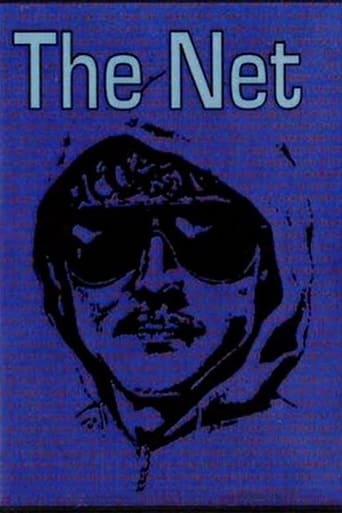

Despite some lofty dialog and cherry-picked quotes by everyone from Norbert Wiener to Wittgenstein, this documentary is a train wreck of thesis, exploration and conclusion.Let me summarize the entire film for you here so you do not have to view it: In an attempt to understand the evolution of computing and it's future impact on humanity (a noble endeavor), the director takes such a disjointed path that the audience can only draw this conclusion: Rather than joining the "Digerati", computer scientists or other profound government-related technology projects like his contemporaries at Harvard and Berkeley during the 1960's, Ted Kaczynski "may have" developed his anti-technology views and perspectives after being subjected to psychologically stressful mind-control experiments while a student at Harvard.There you go.There is certainly a conversation around cybernetics that needs to be had by society, but as it's pointed out emphatically and eloquently multiple times by those who helped orchestrate "the system", killing people to have this debate takes away any legitimacy or credibility Kaczynski had. And the Unabomber is the primary source of counter-argument which the director depends. These repeated encounters destroy the director's agenda (whatever it actually was).You can fear technology as Kaczynski did or as the director is trying to make you, or you can view it the way Stephen Hawking does: Humans, limited by slow biological evolution, will not be able to compete with machine evolution, and would/(will) be superseded. Hawking believes machines are the natural evolution of humanity and likely our only way to get off the short life of our earth and solar systems, and navigate the universe.I don't know what I think, but I'd rather not live in fear if possible. And fear of technology, while completely excusable (Ed Snowden, et. al.) is not presented with any effect in this film.And I still don't know what LSD had to do with the film's premise!
... View MoreThere is no denying the facts uncovered by Mr. Dammbeck. If you are a student of the history of technology, of computing especially, and its relationship with society then this film is a must see.It raises questions which have never been addressed elsewhere. Indeed Mr. Dammbeck discloses that the biases are "systemic".For example, Why did "Silicon Valley" develop in California? Why is the University of California a beacon of BOTH computer science education, and the vanguard cultural movements in the 60s? How exactly were computers marketed to the public at first? In what context? How was the decision to disseminate the mass consumption of computation taken? (This is WAY beyond the "chicken and egg" problems of scope Guy Kawasaki faced with marketing Apple PCs to the public.) What are the Taboos underpinning our technological society? Who benefits from these taboos? What has Thom Friedman left out in his discussion of our presently Global, multi-ethnic society?This is a spare, lean philosophical exploration of things never or rarely discussed in the media, but it is extremely relevant to our present!A Must See, especially for engineering students.
... View MoreThe film was shown this weekend (30 April) in Paris in the presence of its director, Lutz Dammbeck, who stayed to take questions from the audience afterword's.The film's premise is frightening enough -- the internet was originally developed through a sort of unholy alliance between (i) scientists bent on "remodelling" post-WW II man in order to avoid a repeat of war by isolating (through various mind-control experiments) and then removing the genesis of authoritarian personalities, (ii) the American intelligence community bent on winning the Cold War, and (iii) (somewhat improbably) a group of "hippie" non-conformists and artists who shared the vision of the aforementioned scientists. Dammbeck develops the premise by a series of interviews with various members of each group whom he considers as having been the "architechts" of the internet.Against this alliance stands Dammbeck's unpalatable anti-hero, the Unabomber (whom Dammbeck certainly does not admire, yet has some sympathy with -- Dammbeck reminds us that Kaczynski was one of the students who actually underwent the mind-control experiments in question, which may have triggered the unhinging of his mind).The problem with the film is that in each of the interviews, after having drawn out his subject into explaining his role in the development of the internet, Dammbeck then asks the interviewee whether such development was not subject to legitimate criticism and then provides as an example...the criticisms made by Kaczynski in his Unabomber manifesto! Of course, this simply triggers an emotional response from each of the interviewees that Kaczynski was either a madman, a dangerous criminal or both, so that the question of whether there is not some truth to the argument that such development was dangerous is never answered. Dammbeck never first alludes in his interviews to other critics of technological positivism who did not feel it necessary to make their criticisms by means of letter bombs.This "technique" reaches its paroxysm when Dammbeck interviews one of the Unabomber's victims, who lost an eye and a hand to one of the letter bombs, and asks him whether he does not feel that Kaczynski had some worthwhile criticisms to make. Needless to say, the interviewee responds with an entirely understandable emotional response which the audience is somehow supposed to feel constitutes a refusal to consider the merits of the question.Dammbeck might have been better off asking his of his interviewees a series of less "loaded" questions first before springing on them "So, do you think that this fellow who killed three people and wounded a dozen others (including in one case the actual interviewee!) had something worthwhile to say?" It is too bad that this technique takes the edge off what is a very troubling theory developed in the film. Still, it is a film worth seeing, particularly as it becomes clear by the end of the film that Dammbeck has in fact been keeping up a running correspondence with Kaczynski and has a good idea of what makes him tick.
... View More"Das Netz" seemed like an interesting subject matter in the first glance, but the movie is fundamentally flawed by the fact that the author has no profound knowledge about the topic. He's giving obscure statements about the internet being "an agglomeration of machines with indefinite size and power" and his not even partial knowledge about mathematics (and especially Gödel's theories) are hilarious. The scenes in which the director is drawing the "big picture" are completely pointless and it's extremely rude to confront a victim of Kaczynsnki (who lost an arm in a bombing) with the statement that he'd been a victim of a legitimate fight against the "system".
... View More